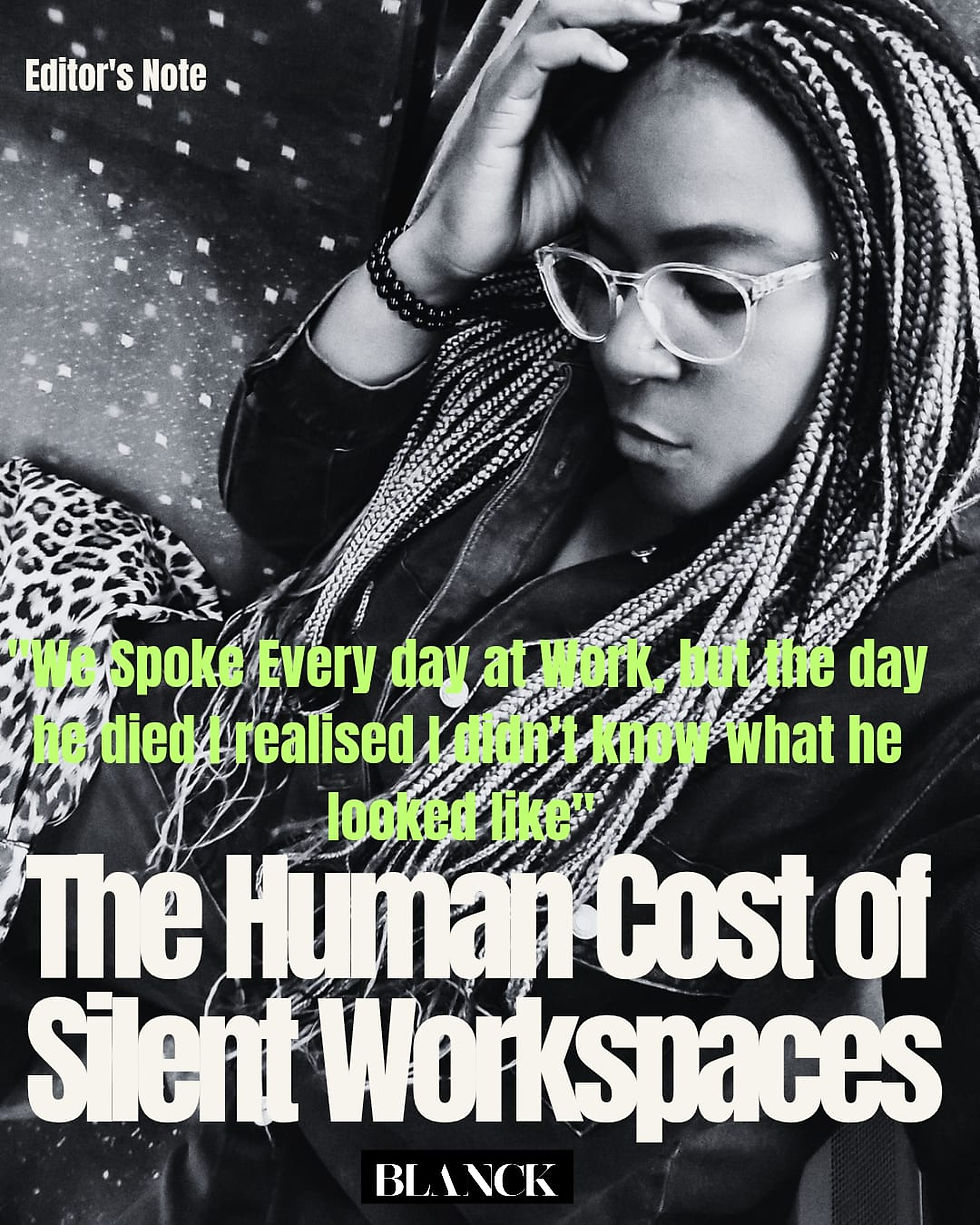
The Human Cost Of Silent Work Spaces.
- Mercy Edmund Harold
- Jul 28, 2025
- 3 min read
We worked together for a year and a half — during the height of the COVID-19 pandemic, when the world had been ordered to stay home. Life had folded itself into Zoom rectangles and muted microphones. But even in that strange reality, his baritone voice carried warmth. Our end-of-day catch-ups had a certain grace to them. He was kind. Thoughtful. Funny. I guessed he might be Black, maybe Jamaican. He once joked that he’d been late to a meeting because he’d taken his time seasoning his jerk chicken — that kind of deliberate joy in the middle of chaos.

We never turned on our cameras.
The only time I accidentally turned mine on, he chuckled.
“I’m sorry, I’m nowhere near as glamorous looking as you — haven’t shaved in a while,” he said. “I’ll keep my camera off, but happy for you to keep yours on.”
We laughed it off and kept on working, invisible faces across flickering screens.
Then one morning, I logged into work and an email appeared:
“Dear colleagues, we are sorry to announce that our dearly beloved colleague, Damson, passed away last night.”
I cried — many layers of grief all at once.
The loss of a kind and brilliant colleague.
The pain of never knowing what he looked like, even after all those months of working so closely.
The unspoken grief for his wife, his kids, their loss of him — and of income, of presence, of everything.
The hollow ache of what work-life could have been, had there been more time.
The it hit me, I actually don't know what Damson looked despite being good colleagues for over a year. I ran to the internet to search for his profile, then I recalled him saying he had no online footprints.
The the guilt set in-
Did I do enough?
Could I have encouraged him, gently, to turn his camera on — just once?
Was he living alone? Was he sick? Was he struggling? Was he depressed? How did he die? Was he real or imagined?
I finally saw a photograph of him during a virtual memorial. Damson was a fine man. Must have been in his fifties. A family man — you could just tell. That image stayed with me. He was real. He had always been real, but now there was a face.
COVID did a lot of visible damage. But some of the worst damage has been silent — isolation.
Since then, I’ve noticed how aggressively some people resist coming into the office, even just a day or two a week. “A complete waste of my time,” some one once told me. But then, another shared how lonely she felt living and working alone after the loss of her husband. Work was the only place she really would be to see and speak with people that were familiar.
I get it how difficult it is to navigate ones care responsibilities with office working—As a mother to a young child, I do. But I also don’t.
While flexible working is brilliant and an absolute dream. I think about how we’ve forgotten what it means to sit beside each other, to look someone in the eye, to check in on people not just through the task lens of Teams, but with real human presence. Since Damson, I’ve made it a quiet duty to reach out to colleagues I care about — beyond the meeting invites and Outlook calendars.
Some losses change the way you move.
His did that for me.
.png)







Comments